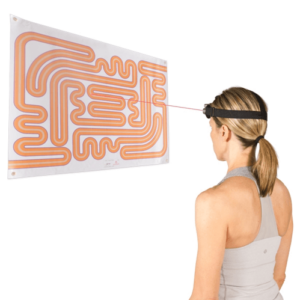Do you sometimes feel weak, or like you just can’t get your footing under you? There are several reasons why this might be happening, and a weak core is one of them.
A weak core might make you feel unbalanced and shaky. Physical therapy can help you strengthen your core and improve your balance as a result.
Physical therapy should include core strength training. Your core muscles play an essential part in keeping you balanced whether you’re sitting, standing, or sprinting. The muscles in your core assist in anchoring your center of gravity, allowing you to maintain balance.
Are you trying to find a way to improve your balance? If that’s the case, get in touch with us right away to learn more about how our core strengthening services might help you.
How are balance and core strength related?
It’s crucial to know where your core muscles are before you can focus on strengthening them. Many folks mistakenly believe they are working their core muscles when working their upper abdominal muscles. These muscles are vital for core strength, but they’re not the ones you’re after!
Your exclusive core muscles are in your pelvis, hips, and lower back, along with the transversus abdominis muscles that make up the “pelvic corset.” These core muscles serve as your body’s natural stabilizers, making constant adjustments in response to nerve cells called “proprioceptors,” which give you your sense of spatial awareness.
As your core becomes stronger, you will be able to steady your balance much easier. When muscles are weak, it is more difficult to balance yourself from your center of gravity. This increases your risk for falls, and it can affect your arm and upper body movements. Back pain, difficulty standing up from a seated position, and incontinence may also indicate an unstable core.
How can my balance benefit from physical therapy treatments?
Our physical therapists are highly skilled and dedicated to helping you improve your balance through core strengthening. When you arrive for your first appointment, your physical therapist will conduct a comprehensive exam to assess your stance, gait, balance, and core muscles.
This will help determine the origin of the weakness and will be the foundation of your treatment plan. Treatment plans will be designed specifically for you and your individual needs. These plans for balance improvement typically include:
- Tai chi. Tai chi is a slow-motion form of Chinese martial art. The poses and transitions done within this type of treatment can help your body develop the core muscles it needs in order to retain the necessary stability from one move to the next.
- Gentle exercises. Depending on the severity of your balance impairment, it may be best to start off slow. Your physical therapist may suggest beginning with gentle and safe exercises, such as leg lifts or pelvic tilts. These types of exercises can help strengthen your back, pelvic, and abdominal core muscles.
- Stability boards. Various types of physical therapy balance boards have a flat surface and a curved underside. Standing on these devices and working to maintain your stability can greatly improve your core balance.
- Abdominal exercises. These may include sit-ups, pushups, and crunches. Abdominal exercises help strengthen the abdominal muscles that work with your core.
Sometimes, when your core is weak, it can cause you to experience added pressure on areas like your neck and back. When you improve your core strength, you are likely to also improve your posture and thereby reduce your risk of developing neck or back pain in the future. Furthermore, the exercises that help to improve core strength are often helpful in promoting weight loss, and for those who are overweight, this could also help reduce pain in your neck and the back.
Let us help you strengthen your core today
Are issues with your balance hindering your daily life? If so, don’t hesitate to contact us as soon as possible. If the problem is a weak core, a physical therapist can help you to improve your strength in no time at all! We’ll provide you with the core strengthening exercises you need to get back on your feet!
Visit our clinics today in Orland Park, Homer Glen, or Crestwood, IL!

